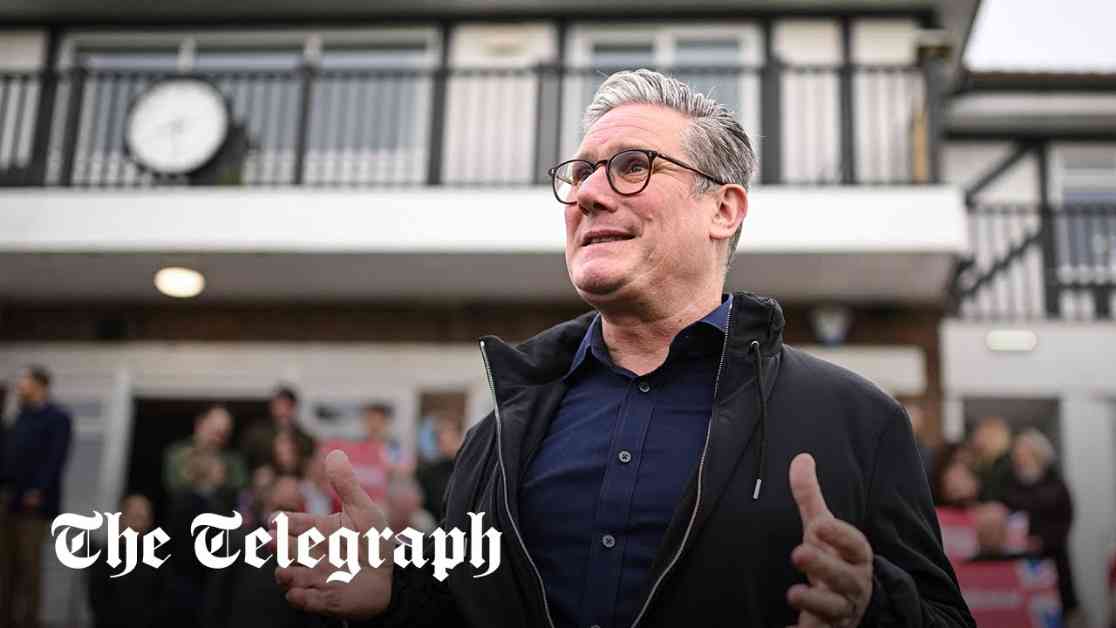Title: Keir Starmer Speech Live: PM Warns ‘Things Will Get Worse Before Better’ – Updates & Analysis
As the nation eagerly awaited Sir Keir Starmer’s address in the 10 Downing Street Rose Garden, the pressure on the Prime Minister to address the growing cronyism row intensified. The revelation that a millionaire donor, Lord Alli, had been granted a security pass to Downing Street raised questions about the transparency and integrity of the government’s dealings. The Tories wasted no time in demanding answers from Simon Case, the Cabinet Secretary, regarding who authorized the pass for Lord Alli, who has generously donated £500,000 to the Labour party. The involvement of Sue Gray, the Prime Minister’s Chief of Staff, further added fuel to the fire as questions swirled about the potential conflicts of interest within the government.
The intricate web of connections between Lord Alli, Sir Keir Starmer, and the Labour party highlighted the complexities of political funding and influence. Lord Alli, a prominent figure in the television industry and former investment banker, had chaired Labour’s election fundraising efforts, making him a significant player in the party’s financial operations. His substantial donations to Sir Keir, totaling nearly £55,000, including a sizable contribution towards “work clothing,” raised eyebrows and underscored the close ties between the donor and the party leader. The revelation of Lord Alli’s additional donation to the constituency Labour party of Liam Conlon, the son of Sue Gray, added another layer of intrigue to the unfolding saga.
The cronyism row plaguing both the government and the opposition parties shed light on the pervasive influence of money and connections in politics. The revolving door between former Labour aides, advisers, and donors securing civil service jobs in the new government raised concerns about the impartiality and fairness of the system. The need for transparency and accountability in political appointments became more apparent as the public demanded answers and assurances that decisions were made in the best interest of the country, rather than personal gain.
Subheadings:
1. The Controversy Surrounding Lord Alli’s Security Pass
2. Sir Keir Starmer’s Ties to Lord Alli and Labour Party Funding
3. The Impact of Cronyism on Government Integrity
Sir Keir Starmer’s eagerly anticipated speech in the 10 Downing Street Rose Garden promised to address the pressing issues facing the nation and outline his vision for the future. As he took to the podium, the Prime Minister wasted no time in acknowledging the challenges ahead, warning that “things will get worse” before they get better. His candid assessment of the current state of affairs aimed to position him as the leader capable of steering the country through turbulent times and restoring faith in the government’s ability to deliver on its promises.
The pledge to “get a grip” on the problems plaguing the UK signaled Sir Keir’s determination to tackle issues head-on and confront the legacy of the Conservative government’s 14-year rule. His commitment to rooting out the “14 years of rot” left behind by the Tories resonated with the audience, who looked to him for decisive action and clear direction. The promise of hard work and dedication to addressing the long-standing challenges facing the country offered a glimpse of hope in an uncertain political landscape.
As Sir Keir fielded questions from the media following his speech, the shadow of the ongoing cronyism row loomed large. The persistent inquiries about the government’s ties to donors and the potential conflicts of interest underscored the need for greater transparency and accountability in political dealings. The public’s demand for ethical leadership and integrity in governance highlighted the importance of upholding democratic values and ensuring that decisions were made in the best interest of the people.
In conclusion, Sir Keir Starmer’s speech in the 10 Downing Street Rose Garden served as a pivotal moment in shaping the narrative of his leadership and the future of the country. His bold vision for a better tomorrow, coupled with a commitment to rooting out corruption and cronyism, resonated with the public and offered a glimmer of hope in challenging times. As the nation grappled with the aftermath of the cronyism scandal, the call for transparency and accountability reverberated throughout the political landscape, underscoring the need for ethical governance and principled leadership.












